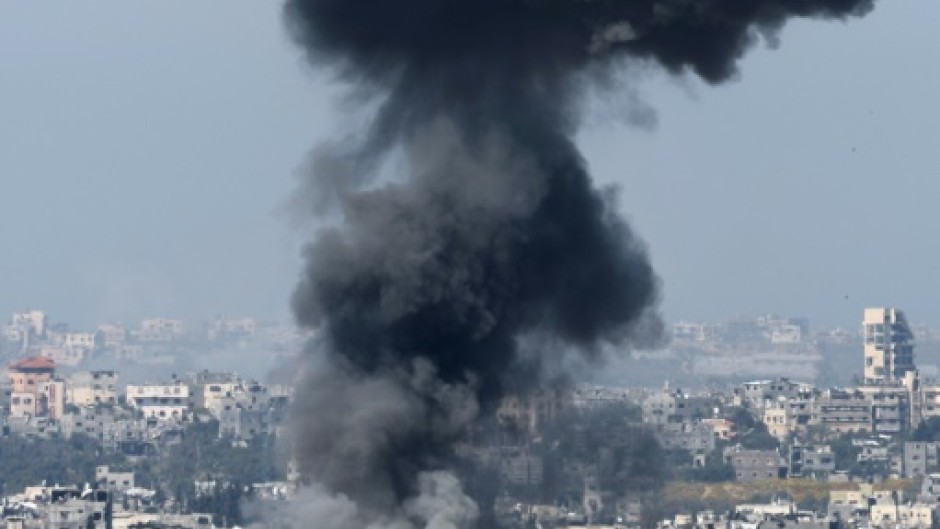RAFAH - Donor nations, aid agencies and charities pushed on with efforts Wednesday to rush food to war-torn Gaza by land, air and sea after the EU top diplomat said starvation had become "a weapon of war".
The Israel's bombardment of Gaza has been raging since 7 October has caused mass civilian deaths, reduced vast areas to a rubble-strewn wasteland and sparked warnings of looming famine in the Palestinian territory of 2.4 million people.
A Spanish charity vessel, the Open Arms, was on its way to Gaza from Cyprus, where it had set sail early Tuesday towing a barge with 200 tonnes of aid, in a first voyage meant to open a maritime corridor.
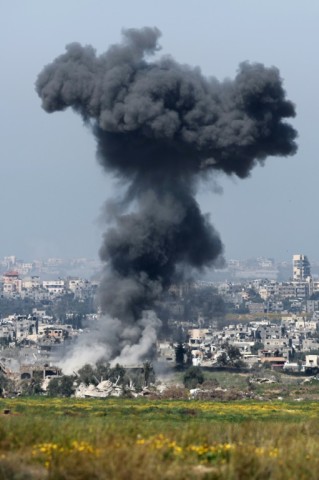
The flow of aid trucks from Egypt into Gaza has slowed recently -- a trend variously blamed on Israel and its security checks of cargo, and on civil unrest in Gaza where desperate crowds have looted aid shipments.
About half a dozen Arab and western nations have airdropped food parcels on parachutes into Gaza, and Morocco has sent a planeload of relief supplies via Israel's Ben Gurion airport.
The UN World Food Programme, trying an alternative land route from southern Israel, sent an initial six aid trucks Tuesday into worst-hit northern Gaza, through a gate in the security fence, the Israeli army said.
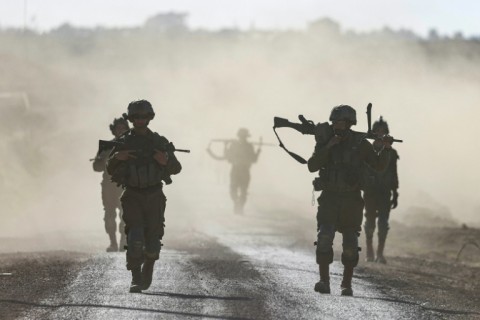
The WFP said it had "delivered enough food for 25,000 people" and demanded that, "with people in northern Gaza on the brink of famine, we need deliveries every day. We need entry points directly into the north."
The European Union's foreign affairs chief Josep Borrell told the UN Security Council on Tuesday that the humanitarian crisis "is man-made".
"If we look at alternative ways to provide support, it's because the land crossings have been artificially closed," he said, charging that "starvation is being used as a weapon of war".
- 'War on children' -
The Gaza war was sparked by the October 7 Hamas attack that resulted in about 1,160 deaths in Israel, mostly civilians, according to an AFP count based on official Israeli figures.
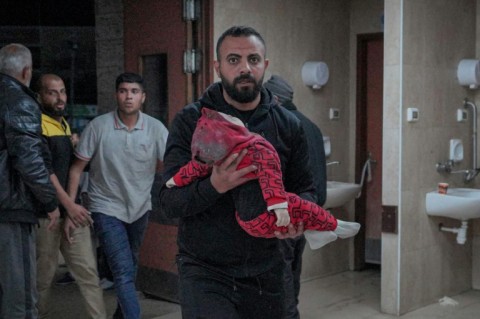
The militants also took about 250 hostages, dozens of whom were released during a week-long truce in November. Israel believes about 130 captives remain in Gaza but that 32 of them are dead.
Israel's retaliatory bombardment and ground offensive have killed 31,272 Palestinians in Gaza, mostly women and children, according to the health ministry.
At least 88 people were killed over the past 24 hours, it said, adding that "dozens of missing persons are still under the rubble".
The Israeli army said its troops were "intensifying operations" in the southern Gaza Strip, including the biggest city there, Khan Yunis.
"In the last 24 hours, there were exchanges of fire between IDF (Israeli army) troops and a terrorist cell consisting of seven terror operatives barricaded inside a compound in the Hamad area of Khan Yunis," it said.
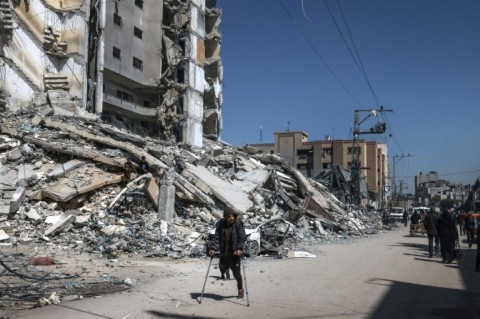
"In a coordinated strike, the troops killed several of the terrorists, and then directed an aircraft to strike and eliminate the rest of the cell. Weapons were also located in the area."
Weeks of talks involving US, Qatari and Egyptian mediators had aimed to bring a truce and hostage release deal before the start of the Muslim holy month of Ramadan, but missed the Monday deadline.
Qatari foreign ministry spokesman Majed al-Ansari said that, although talks continued, "we are not near a deal".
Israeli Prime Minister Benjamin Netanyahu has doubled down on his pledge to "destroy Hamas" -- including by sending troops into Gaza's last area so far spared ground operations, far-southern Rafah.
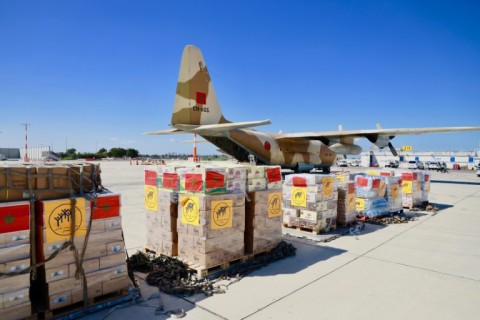
In a speech delivered via video link to a pro-Israel lobby group in the United States, he pledged that "we will finish the job in Rafah while enabling the civilian population to get out of harm's way".
The prospect of a Rafah invasion has sparked global alarm because it is crowded with almost 1.5 million people displaced, many sheltering in camps of makeshift tents.
Philippe Lazzarini, head of the UN agency for Palestinian refugees, called for an immediate ceasefire and branded the conflict "a war on children".
- Maritime corridor -
Gaza's dire food shortages after more than five months of war and siege have killed 27 people through malnutrition and dehydration, most of them children, according to the Gaza health ministry.
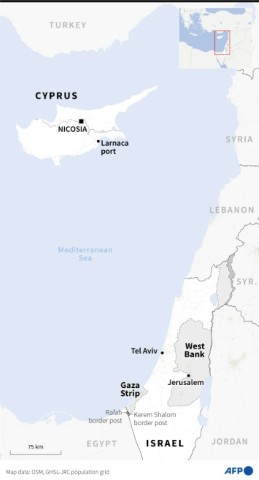
As aid agencies warn the truck deliveries and airdrops fall far short of meeting the desperate need, European nations and the United States have announced plans to send more relief goods by sea.
US President Joe Biden last week announced plans for the military to build a pier on Gaza's coast, and four US Army vessels left a base in Virginia on Tuesday carrying about 100 soldiers and equipment.
The offshore platform and pier are expected to be up and running "at the 60-day mark", US Army Brigadier General Brad Hinson told journalists.
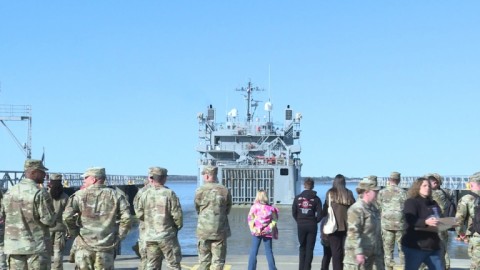
Cypriot Foreign Minister Constantinos Kombos said Tuesday that "if all goes according to plan... we have already put in place the mechanism for a second and much bigger cargo".
"And then we'll be working towards making this a more systematic exercise with increased volumes."
By Adel Zaanoun With Louis Baudoin-laarman In Jerusalem

